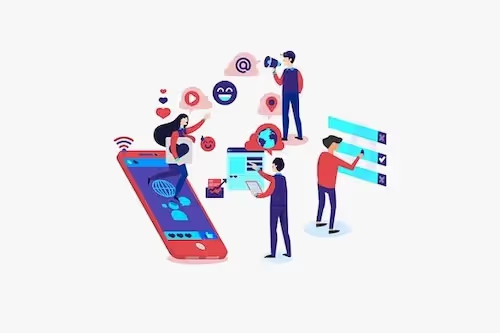TL;DR
Social media APIs can do more than collect data — they help brands create a full-funnel workflow that starts with social listening and ends with influencer vetting. This blog explores how API integration powers audience insights, identifies influencer opportunities, automates background screening, and maintains brand safety. Tools like Phyllo’s Social Listening API and Social Screening enable brands to streamline this entire journey.
Why the Influencer Funnel Needs a Tech Upgrade
Traditional influencer discovery and vetting methods are outdated. Spreadsheets, manual research, and gut instinct don’t scale in today’s digital ecosystem. With millions of influencers across platforms, brands need a smarter, data-driven way to:
- Identify credible creators
- Track real-time brand conversations
- Evaluate content risk
- Ensure campaign safety
APIs from platforms like TikTok, Instagram, and LinkedIn allow structured access to social data that fuels every stage of this funnel.
What Is a Full-Funnel Influencer Workflow?
A full-funnel influencer workflow spans the entire journey from discovering creators to onboarding and monitoring them. Here's what it typically includes:
Funnel Stages:
- Social Listening – Detecting conversations, mentions, and trends
- Influencer Discovery – Identifying relevant creators with engaged audiences
- Influencer Vetting – Screening past content, audience sentiment, and alignment
- Partnership Activation – Contracting and launching campaigns
- Live Monitoring – Tracking sentiment, risks, and campaign performance
Each stage can be automated using a social media API suite integrated with internal tools.
Stage 1: Social Listening – Identifying Trends and Voices
This stage involves monitoring what your audience is talking about, where your brand is being mentioned, and what influencers are shaping those narratives.
Powered by:
- Social Listening APIs like Phyllo's
- Twitter/X, Reddit, TikTok trend data
- NLP tools for sentiment tagging
Key API-Accessible Data:
- Mentions of brand or competitors
- Trending hashtags and phrases
- Top-engaged public posts
- Conversation sentiment (positive/neutral/negative)
Why It Matters:
- Helps spot emerging influencers
- Identifies potential brand advocates
- Reveals audience preferences in real time
Stage 2: Influencer Discovery – Finding the Right Creators
Once trends are understood, the next step is to identify creators who lead or participate in those conversations.
Data Used:
- Public profile data from Instagram, TikTok, LinkedIn
- Follower count, bio keywords, niche tags
- Engagement stats (likes/comments/shares)
Useful APIs:
- Instagram Graph API – Media + metrics for business accounts
- TikTok API – Videos, comments, hashtags
- LinkedIn API – Professional credibility
Discovery Filters:
- Location and niche relevance
- Audience engagement rate
- Sentiment quality in comment sections
Platforms like Phyllo consolidate discovery data across platforms.
Stage 3: Influencer Vetting – Screening for Brand Safety
Not all creators are brand-safe. This stage evaluates a creator’s history, tone, and audience alignment before outreach.
Key Vetting Metrics:
- History of inappropriate content
- Comment sentiment and audience tone
- Follower authenticity (bot/fake ratio)
- Controversial keyword mentions
APIs in Use:
- Content APIs – To pull past posts, hashtags, and captions
- Engagement APIs – To analyze how people react
- Listening APIs – To detect controversial mentions
Example Vetting Table:
Phyllo’s Influencer Vetting for Brand Safety automates this process at scale.
Stage 4: Campaign Activation – API-Driven Onboarding
Once vetted, creators can be onboarded for paid or organic partnerships. APIs simplify this through:
API Integration Helps:
- Auto-verification of creator profiles
- Secure token-based access to analytics
- Real-time campaign tracking setup
This ensures faster onboarding and seamless access to performance data.
Stage 5: Live Monitoring – Ongoing Risk + Performance Checks
Even after onboarding, brands must monitor campaigns in real time to prevent PR issues or wasted spend.
What to Monitor:
- Sudden sentiment drops
- Brand mentions linked to creator posts
- Real-time engagement anomalies
Real-Time Tools:
- Listening APIs for mention alerts
- Audience sentiment shifts via NLP models
- Content compliance via trigger keyword scans
Tools like Phyllo’s Social Screening provide alerts on reputational threats before they go viral.
API Integration: The Glue Holding the Funnel Together
Manually executing this 5-stage funnel is labor-intensive and inconsistent. API integration allows:
- Consistent data across all funnel stages
- Automated workflows with minimal manual input
- Compliance with data access rules
- Scalability for multi-market campaigns
Here’s how a unified API compares to separate implementations:
Case Study: Beauty Brand Launches API-Based Vetting Workflow
A global beauty brand needed to partner with over 200 creators across Asia and Europe. Their goals:
- Ensure no past controversies
- Filter creators with high fake follower ratio
- Track sentiment after launch
Outcome:
- Phyllo’s unified APIs helped onboard 218 creators in 9 days
- Flagged 31 creators with audience or content red flags
- Saved 70% in internal resource hours
How to Get Started with Full-Funnel API Integration
If you’re building a workflow that spans discovery to compliance, here’s what you need:
Steps:
- Define your funnel stages
- Choose APIs for each stage (or use a unified one)
- Set up access tokens with proper consent
- Use machine learning for automated scoring
- Monitor risks continuously
Use tools like:
- Phyllo’s Social Listening API
- Phyllo’s Social Media Intelligence
- Phyllo’s Influencer Vetting for Brand Safety
- Phyllo’s Social Screening
Conclusion
API-powered influencer funnels are the future of modern marketing. With social listening at the top and automated vetting at the core, brands can:
- Discover aligned creators
- Avoid reputational risks
- Track performance in real-time
- Scale campaigns across markets
Whether it’s TikTok trends or LinkedIn credibility checks, social media APIs deliver the insights needed to build brand-safe partnerships.
Frequently Asked Questions
1. What is a full-funnel influencer vetting strategy?
It refers to a structured workflow that uses social data from discovery to onboarding and post-campaign monitoring.
2. How do social listening APIs support influencer discovery?
They track real-time mentions, hashtags, and sentiment to help identify influential voices in your industry.
3. What types of data can social media APIs access?
Public posts, comments, likes, shares, bio data, sentiment scores, and follower counts, depending on platform permissions.
4. Is it legal to vet influencers using APIs?
Yes — as long as you use official APIs and comply with privacy laws like GDPR and CCPA.
5. Can APIs detect fake followers or bot activity?
Yes. Engagement APIs and audience analysis can detect anomalies in follower behavior.
6. Why is API integration better than manual influencer vetting?
APIs automate data collection, reduce errors, and enable faster decision-making across multiple creators and platforms.
7. How does Phyllo simplify full-funnel influencer vetting?
Phyllo offers unified APIs for Instagram, TikTok, LinkedIn, and others, enabling listening, vetting, and screening in one place.
8. What platforms can I connect to using Phyllo’s API stack?
Phyllo supports TikTok, Instagram, YouTube, LinkedIn, Twitter/X, Reddit, and more.











.avif)
.avif)
.avif)
.avif)
